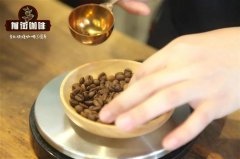Caffeine is good for your health. Do you want to get rid of caffeine?

Professional coffee knowledge exchange more coffee bean information please follow the coffee workshop (Wechat official account cafe_style)
Langer, a 19th-century German chemist, made pioneering progress in the study of belladonna, a Solanaceae plant, from which he isolated a compound that once ingested can lead to eye muscle expansion. He attracted the attention of Goethe, a poet and politician, who was also a scholar with a passion for science.
Goethe recently received a box of coffee beans, so he asked Langer to analyze the coffee beans. Langer found caffeine, which is probably the most consumed drug in modern society.
However, coffee is really a lovely and frightening drink, and its strong aroma is an irresistible temptation. However, according to the statistical results of various studies, it is found that the drip-boiled coffee served in general coffee shops is a cup of 230c.c. It contains about 85 milligrams of caffeine (each house increases or decreases according to the concentration of coffee). Basically, it's best not to consume more than 300 milligrams of caffeine a day. Moreover, I suggest that unless necessary, try not to drink decaffeinated coffee, because when removing caffeine, you must use organic solvents, so decaffeinated coffee will have some residual organic solvents that affect your health. Some pregnant women order decaffeinated coffee in order not to drink caffeine, but there is a risk of drinking organic solvents. However, since supercritical extraction is often used in the food industry, doubts about residual organic solvents have been greatly reduced. In addition, some instant coffee is roasted with mung beans and then mixed with coffee flavor spices and cream. if you drink such "coffee", you will not get the benefits of coffee.
Caffeine is also found in other drinks and foods, especially tea and chocolate, but it is closely related to coffee. It is a stimulant that suppresses appetite, and caffeine is a reliable pick-me-up for students who study crazily for exams, night shift workers and anyone who needs to wake up.
Can you remove the caffeine from the coffee? If you look at the shelves in the supermarket, the answer is yes, but the process is not as simple as you think.
Ludwig Roselius, the head of Kaffee HAG, a German, was also the first to find a practical way to decaf. Rossius discovered the secret of removing caffeine by accident. In 1903, a batch of coffee was soaked in sea water during transportation, which filtered out caffeine but retained the taste of the coffee. Rossius came up with an industrial way to simulate this process: steaming coffee beans with various acids and then using benzene solvents to remove caffeine. That's how decaf was born.
But it was later discovered that benzene might cause cancer, so they began to look for new technologies to extract caffeine safely and harmlessly while keeping the coffee flavor unchanged.
Chris Stemman, executive director of the British Coffee Association (British Coffee Association), says many of the early decaf techniques are still in use today, but the process is not as simple as you think.
"Coffee companies don't do it themselves," Steinman said. "there are special companies to remove caffeine." Many of them are in Europe, Canada, the United States and South America.
Important Notice :
前街咖啡 FrontStreet Coffee has moved to new addredd:
FrontStreet Coffee Address: 315,Donghua East Road,GuangZhou
Tel:020 38364473
- Prev

The correct match makes the individual coffee more delicious. 22 kinds of dim sum fruits teach you to drink coffee perfectly.
Professional coffee knowledge exchange more coffee bean information Please pay attention to the coffee workshop (Wechat official account cafe_style) Coffee has come into the lives of most people, drinking coffee will always go with some desserts and other foods. But what kind of coffee with which is the best, can best show the taste of coffee? Come and have a try! 1. Italian pretzels are the most common, even in the United States.
- Next

Explain the differences between instant coffee and freshly ground coffee, from production process to flavor and brewing.
Professional coffee knowledge exchange more coffee bean information please follow the coffee workshop (Wechat official account cafe_style) 1. About the production process of instant coffee is made by baking and grinding coffee beans, adding fungicides, stabilizers, pigments, flavors and other chemical substances after high-pressure pulping and spray drying into powdered particles; while the natural coffee in coffee shops is made after coffee trees are picked.
Related
- Beginners will see the "Coffee pull flower" guide!
- What is the difference between ice blog purified milk and ordinary milk coffee?
- Why is the Philippines the largest producer of crops in Liberia?
- For coffee extraction, should the fine powder be retained?
- How does extracted espresso fill pressed powder? How much strength does it take to press the powder?
- How to make jasmine cold extract coffee? Is the jasmine + latte good?
- Will this little toy really make the coffee taste better? How does Lily Drip affect coffee extraction?
- Will the action of slapping the filter cup also affect coffee extraction?
- What's the difference between powder-to-water ratio and powder-to-liquid ratio?
- What is the Ethiopian local species? What does it have to do with Heirloom native species?

